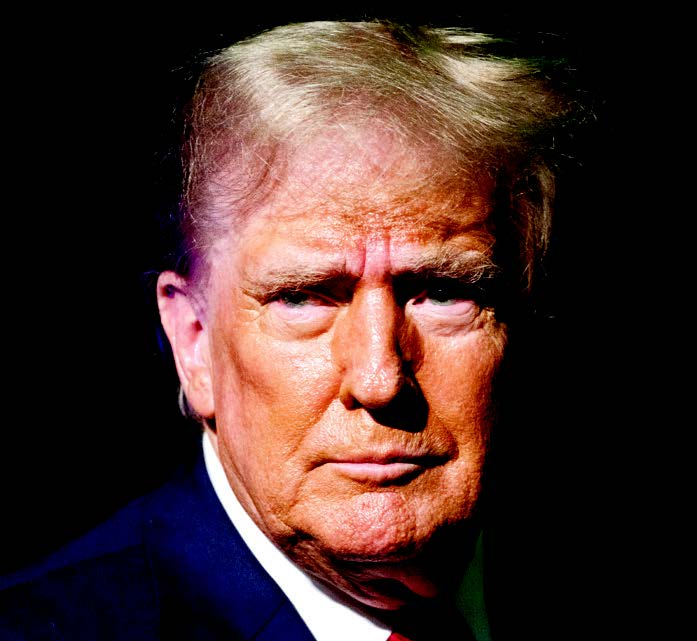
By The Editorial Board
The American electorate has opted to usher Donald Trump back into the White House, steering the nation onto a precarious trajectory that remains largely unpredictable.
The founders of this nation foresaw the potential for voters to select an authoritarian leader, leading them to implement safeguards within the Constitution, including powers allocated to two other branches of government aimed at counterbalancing a president who might manipulate or contravene laws for personal gain. Additionally, they instituted a series of rights — notably the First Amendment — empowering citizens to assemble, speak out, and protest against the actions and rhetoric of their leader.
In the coming four years, it is imperative that Americans remain aware of the dangers that will stem from their 47th president, and be ready to uphold their rights in defense of the nation and the principles, laws, institutions, and values that have fortified it.
It is undeniable that millions backed a candidate whom even some of his staunchest supporters concede to be fundamentally flawed — believing he would be more capable of addressing the urgent challenges they associate with the nation: rising costs, an influx of immigrants, a vulnerable southern border, and economic policies that have distributed benefits unevenly across society. For some, their votes emerged from deep-seated dissatisfaction with the current state of affairs, the political landscape, or American institutions at large.
Regardless of the motivations behind their choice, all Americans ought to remain cautious of a looming Trump administration likely focused on consolidating unchecked authority and retaliating against perceived adversaries—both of which Trump has repeatedly promised to enact. Citizens, irrespective of their political affiliations, should demand that the crucial foundations of national democracy — including constitutional checks and balances, unbiased federal prosecutors and judges, a fair electoral system, and fundamental civil rights — remain safeguarded against an onslaught he has initiated and declared he would perpetuate.
At this juncture, there can be no illusions about Donald Trump’s identity and governance style. His previous term and the aftermath of his departure showcased his disregard for the law, and by extension, for the values, norms, and traditions that underpin democracy. In assuming leadership of the world’s most formidable nation, his motivations are overtly centered on acquiring power and sustaining the personality cult he has established around himself. Such stark evaluations resonate not solely with his critics but also with those who served closely alongside him.
Throughout history, our nation has consistently emerged from tumult with its ideals intact, often sharpened and fortified. The structures of our government, strengthened by nearly 250 years of conflict, upheaval, assassination, and war, stood resolute against Trump’s attacks four years prior. Additionally, Americans have demonstrated their ability to counteract Trump’s most destructive impulses—actions deemed unjust, immoral, or illegal—time and again during his first administration. Civil servants, members of Congress, individuals from his own party, and those he appointed to significant roles frequently obstructed the former president’s schemes, while other societal institutions such as the free press and independent law enforcement agencies held him accountable to the public.
Trump and his ideology have largely dominated the Republican Party. Nevertheless, it is crucial to remember that Trump is ineligible for reelection. The moment he steps back into the White House, he will, in essence, be a lame-duck president. The Constitution restricts him to two terms, and Congress holds the power—along with potential political incentives for some ambitious Republicans—to steer the agenda away from Trump’s antidemocratic stance, should it choose to act accordingly.
Governors and state legislatures nationwide have been fortifying their laws and constitutions to uphold civil rights and liberties, including access to reproductive and gender-affirming healthcare. Even states that supported Trump overwhelmingly, such as Kentucky, Ohio, and Kansas, have rejected the most extreme anti-abortion measures. Other facets of American civil society will assume a vital role in challenging the Trump administration through legal avenues, community efforts, and the protests that are anticipated to reemerge.
The international community also retains no misconceptions regarding the leader who will soon again represent the United States globally. NATO allies were taken aback during Trump’s initial presidency by his willingness to undermine that longstanding alliance. However, contrary to Trump’s expectations, European nations not only united with the United States in response to Russia’s invasion of Ukraine but also expanded their ranks up to Russia’s borders.
Perhaps the most significant responsibility lies with those who will serve in a second Trump administration. Individuals appointed as attorney general, secretary of defense, and to other high-ranking positions should anticipate that he may request them to execute unlawful acts or betray their oaths to the Constitution on his behalf, as he did previously. We implore them to understand that no matter the loyalty he demands, their foremost allegiance should be to their country. Standing up to Trump is feasible, and it is the obligation of every American public servant to do so when warranted.
However, the ultimate responsibility for upholding America’s enduring values rests with its electorate. Those who supported Trump in this election should carefully monitor his behavior in office to ascertain if it aligns with their aspirations and expectations; if it falls short, they must express their disappointment and cast votes in the 2026 midterms and in 2028 to realign the nation. Conversely, those opposed to him should not hesitate to issue warnings when he misuses his authority, and if he seeks to leverage governmental power against dissenters, the world will be watching.
Benjamin Franklin famously cautioned the American populace that the nation was “a republic, if you can keep it.” Trump’s election represents a significant threat to that republic, but he will not dictate the long-term future of American democracy. That destiny remains in the hands of the American people, with the next four years being pivotal to this pursuit.
